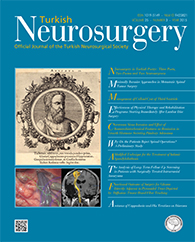2A J Institute Medical Sciences, Department of Pharmacology, Mangalore, India DOI : 10.5137/1019-5149.JTN.11405-14.1 AIM: Prolonged exposure to stress mainly affects the cognitive functions of the brain by inducing neuronal damage mediated through oxidative stress. Acorus calamus (AC) has long been used in Indian folk medicine for various central nervous system (CNS) abnormalities. Hence the present study investigates the effect AC on learning and memory in rats.
MATERIAL and METHODS: Adult Wistar male rats were subjected to restrained stress for 21 days (6hr/day) and the animals were concurrently administered AC for 21 days orally. The Hebb-Williams maze and elevated plus maze served as standard behavioural models for testing memory. The rats were sacrificed on 22nd day and the brain homogenate was taken for various biochemical assessments.
RESULTS: Sodium potassium ATPase activity and TBARS levels showed a significant decrease in the stress group compared to control. After administration of AC, the activity of Na- K- ATPase and levels of TBARS showed a tendency to revert back to normal. However there was no effect on AOPP levels, even after the treatment, which remained high.
CONCLUSION: The present study shows the preventive action of AC rhizome powder on stress induced cognitive functions and modulatory effect on antioxidants and Na-K-ATPase activity.
Keywords : Restraint stress, Acorus calamus, Elevated plus maze, Hebb-Williams maze, Rat, TBARS




